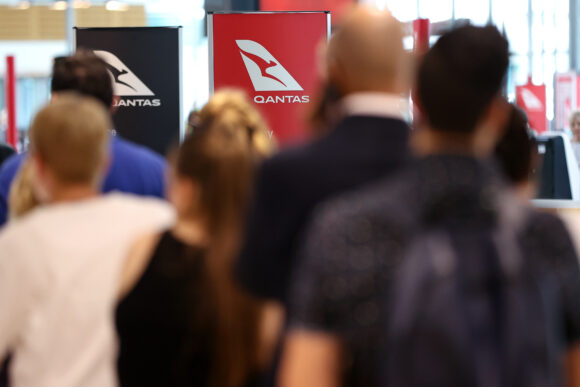Qantas Airways Ltd. said personal information belonging to 5.7 million customers, ranging from names and addresses to phone numbers and meal preferences, were stolen in last week’s cyberattack, as the fallout from the latest airline security breach becomes clearer.
The Australian carrier on Wednesday said it has started to tell impacted customers what specific data was lost in the attack. While there’s no evidence any stolen information has been released publicly, Qantas is monitoring the situation with the help of specialist cybersecurity experts, it said.
The airline’s analysis since the breach took place suggests that the financial impact for customers is limited, at least for now. There were no credit card details or financial information in the compromised system, and the data that was stolen isn’t enough to gain access to frequent flyer accounts, Qantas said.
Read more: Australia’s Qantas Says 6 Million Customer Accounts Accessed in Cyber Hack
The airline’s shares traded up as much as 1.1% in Sydney [on July 9].
While the damage appears to be contained, the attack is testing Chief Executive Officer Vanessa Hudson’s ability to handle a crisis. Since taking over almost two years ago, Hudson has largely focused on repairing the reputational scarring left by her predecessor, Alan Joyce.
Qantas’s Itemized Fallout:
| Data Stolen: | Impacted Passengers |
|---|---|
| Name, email, frequent flyer number | 2.8 million |
| Name, email | 1.2 million |
| Address | 1.3 million |
| Date of birth | 1.1 million |
| Phone number | 900,000 |
| Gender | 400,000 |
| Meal preferences | 10,000 |
In Wednesday’s statement, Hudson said Qantas is advising impacted customers how to access any necessary support services. She said the airline has put in extra security measures since the incident and is continuing to review what happened.
Qantas joins a growing list of airlines suffering hacking breaches in recent weeks, including Alaska Air Group Inc.’s Hawaiian Airlines and Canada’s WestJet Airlines Ltd. The US Federal Bureau of Investigation has warned that notorious cybercrime group Scattered Spider was targeting airlines using techniques impersonating employees or contractors to hack into IT systems.
Photograph: Qantas Airways signage at Sydney Airport in Sydney, Australia. Photo credit: Brendon Thorne/Bloomberg
Topics Fraud
Was this article valuable?
Here are more articles you may enjoy.



 Former Broker, Co-Defendant Sentenced to 20 Years in Fraudulent ACA Sign-Ups
Former Broker, Co-Defendant Sentenced to 20 Years in Fraudulent ACA Sign-Ups  Insurance Broker Stocks Sink as AI App Sparks Disruption Fears
Insurance Broker Stocks Sink as AI App Sparks Disruption Fears  Preparing for an AI Native Future
Preparing for an AI Native Future  Jury Finds Johnson & Johnson Liable for Cancer in Latest Talc Trial
Jury Finds Johnson & Johnson Liable for Cancer in Latest Talc Trial 

